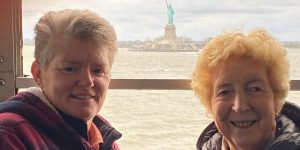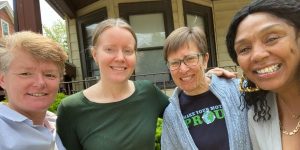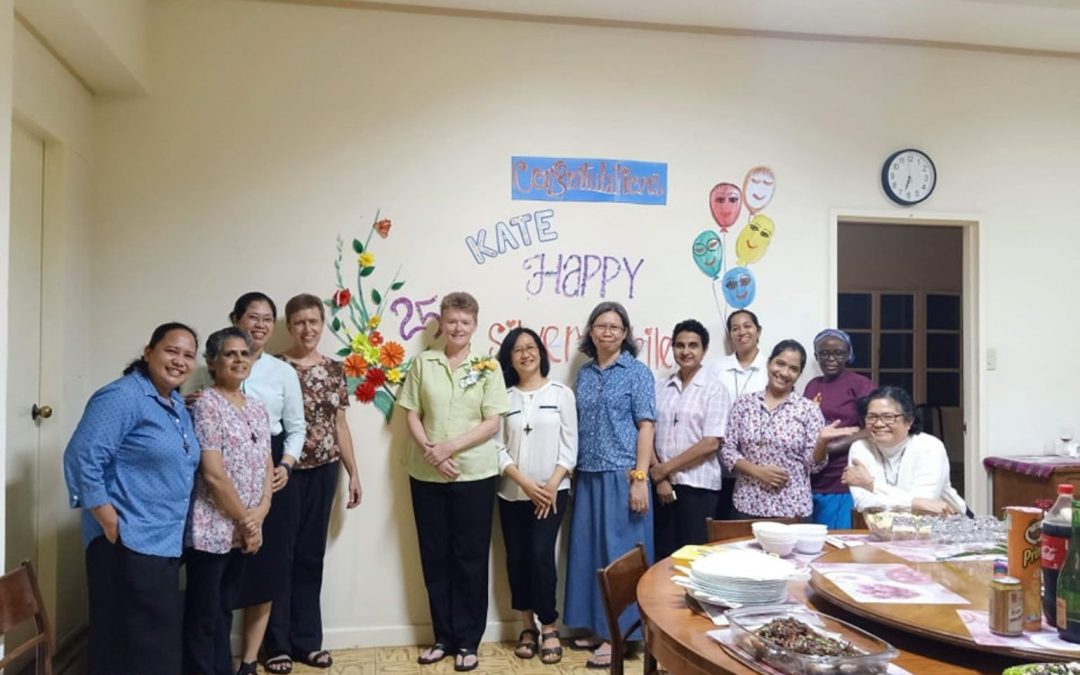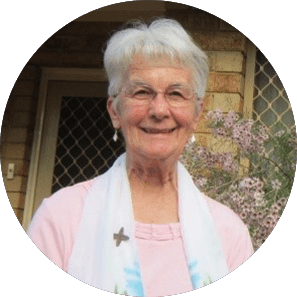As I reflect on my missionary journey, I realise my missionary desire had its roots in my childhood. I was born and raised in Geelong, Victoria. I was educated by the Brigidine Sisters through both primary and secondary school, and life outside of school was dedicated to sports and parish involvements. Parish picnics, playing for the parish tennis club, and camping with other families from the parish were happy, memorable times.
My parents were involved in an organization through which we welcomed refugees to our home. At that time, most of the refugees were teenagers who had fled Vietnam. Our family grew larger on some weekends when the Vietnamese would come and live with us to practice English and to experience life in an Australian family context. Experiences of listening to teenagers having to run, hide and leave everything behind in order to move to a foreign land for survival made an impression on me. Perhaps this is where the seed of my missionary desire to live in another culture was sown.
Educated by the Brigidine Sisters, the motto of “Strength and Kindliness, in the Spirit of Social Justice” was imbued during these years. While in secondary school, two of my older brothers entered the Columban Fathers, and I was fortunate to meet many religious missionary men and women who were friends of my brothers. Their stories of faith and justice inspired me, and my own desire to be a missionary grew.
After completing secondary school, I went to Aquinas Teacher’s College (Ballarat), and I remember thinking that, with teaching skills, I could be a lay missionary somewhere. My first teaching position was in St Gabriel’s Primary school in Traralgon, Victoria. During these years my desire to offer myself to God at the service of God’s people became very strong. I had met some Sisters of Our Lady of the Missions and I was drawn to their “down to earth-ness” and passion for missionary life.
In 1992, I joined the Sisters of Our Lady of the Missions (RNDM) and spent the next eleven years in formation in New Zealand. Novitiate was based in Auckland, and, following studies to gain a Social Work degree, I moved to Christchurch and to ministry among adolescents and young adults who had the streets as their home, with most dependent on drugs and engaged in prostitution. These years gifted me with rich learnings and valuable experience.
Still, my desire for further international mission permeated my heart, and, after making final vows in my home parish in Geelong in 2002, I was delighted to be missioned to the Philippines. RNDM had sisters living in the big city of Manila for administration and study purposes, and wanted to develop a ministry involvement there, too.
For the next nineteen years, I came to know and accompany hundreds of children on the streets of Manila, mainly through my engagement with an NGO – Kuya Center for Street Children. I would sit with these kids on the sides of busy roads, in the polluted public markets, in cemeteries, under bridges, welcome to wherever was “home” for them. Patiently forging trust and encouraging the street kids to claim their own self-worth and potential, they were offered a safe environment in Kuya Center where they could live, heal and reconcile family hurts and abuse. Efforts to acquire their birth certificates enabled them to proudly enter the formal education system.
I was blessed by so many street kids during my years in the Philippines. Reconciling lost children with their parents after many years of separation was a real source of joy. The privilege of being welcomed into the tight-knit community of street kids, walking alongside them until they made the choice to make a change, touched my heart deeply. Street children work 12- to14-hour days and nights, scavenging and recycling for one meal a day, or to contribute their mite to their family also living in slums or on the side of the roads. Despite their undernourished and frail bodies, I will never forget their delight in welcoming me.
Amid the hours spent in a dirty public market, offering non-formal education to kids who lived and worked in the smelly meat section, I remember one of our classes about valuing and respecting others, during which the kids wanted to learn about the ten commandments. Their “homework” was to share how they felt they had lived the ten commandments over the course of the week. I noticed, when we gathered the next time, that one little eight-year-old girl, who was usually lively and ready to respond, seemed rather shy and reserved. She quietly shared with me that she hadn’t done very well with her homework. She was expected to bring home 50 pesos ($1.50) each day after the completion of her 12-14 hours of scavenging barefoot amidst the rats and mess in the market. On one particular day, she had been unable to earn anything, and so she stole a very small amount of garlic and ginger (essential ingredients for Filipino cooking) from a vegetable vendor as her offering for the family meal. She was so sad about this, but knew the violent consequences if she reached home with nothing to contribute for the family meal. The shame this little girl carried seemed to shift for her when I assured her that I was sure God understood and loved her.
Tragically, some children lost their lives at a very young age, while others are now engineers, teachers, bakers, or doctors, thanks to the choices the children were encouraged to make, and the resources we, at Kuya Center, were able to provide through faithful and generous supporters. Maneuvering through corrupt bureaucracy for the dignity and well being of children who have the streets as their home was a daily reality. Yet, if one child’s life could be changed, the frustration and energy required was well and truly worth it.
During my later years in Manila, Claudia, a Canadian RNDM, and I designed and implemented a microfinance program with the aim of providing opportunities for street families and slum dwellers to break the generational cycle of poverty. For the following eight years, we encouraged, trained and supported the entrepreneurship of women living in destitute poverty. These women began and ran their own small businesses, providing a means of livelihood for their families. This program made it possible for families to remain together and for parents to provide for their children’s education, thus decreasing the risk of their children entering into the dangers of street life.
My heart has been deeply moved by the precious reality of many Filipino children’s lives. There were times of pain, anguish and grief, yet also wonderful moments of joy and happiness. I have been blessed and privileged to be a part of their journeys.

In 2023, RNDMs began a new missionary initiative in New York, USA. In collaboration with LifeWay Network, a Canadian RNDM and I formed the “host community” in a safe home for women survivors of human trafficking. We provide a safe space for women who have been rescued from human trafficking situations where they can heal and receive services needed to enhance their growth. My life continues to be enriched living with people from many different cultures.



